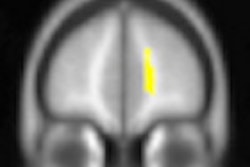When doctors own or lease MRI equipment, their patients are more likely to receive scans for low back pain, and patients of orthopedists who get scans are more apt to undergo back surgery, according to a study published online April 26 in Health Services Research.
The research from Stanford University found that the rate of MRI scans increased by 13% for orthopedists' patients and by 32% for patients of primary care doctors. Lead study author Dr. Jacqueline Baras Shreibati and colleagues attributed the increases to financial incentives, which seemed to influence physicians' behavior and decisions.
The study reviewed scan rates for Medicare patients of 1,033 primary care physicians and 1,271 orthopedists before and after the practitioners acquired MRI equipment. The research included both direct purchase of the MRI scanners and lease arrangements through which physicians would be billed directly for scans they ordered.
The analysis found that patients who visited an orthopedist after an MRI scan were 34% more likely to undergo back surgery within six months. In addition, there was no definitive evidence that either the MRI or surgery for low back pain improved patients' outcomes.
The authors stressed that the findings do not indicate that patients should question their physicians' diagnoses or recommendations; however, they recommended that patients keep in mind that financial incentives tied to physician self-referral may influence the care they receive.
While their intent was not to determine whether the additional surgeries were necessary, Shreibati and colleagues noted that the results did show a direct relationship between imaging and surgery in a group of patients for whom surgery can be a controversial treatment option.
Jean Mitchell, PhD, professor of public policy at Georgetown University, said the researchers' findings illustrate the effects of self-referral and its impact on the back procedure itself. If the patients hadn't had the MRI, they never would have had the back surgery, Mitchell added.
Federal regulations prohibit physicians from referring Medicaid or Medicare patients for health services in which they have a financial interest, but there is an exception for in-office procedures, including MRI scans done with offsite equipment leased on a per-scan basis.
Mitchell estimated that Medicare spending could decrease approximately 25% if self-referrals were monitored or eliminated.


.fFmgij6Hin.png?auto=compress%2Cformat&fit=crop&h=100&q=70&w=100)





.fFmgij6Hin.png?auto=compress%2Cformat&fit=crop&h=167&q=70&w=250)











